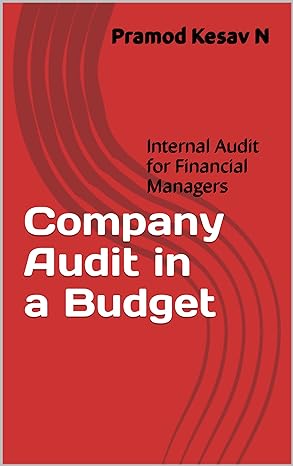Question
Eddy Falls is considering litigating a tax deficiency of approximately $229,030 in the court system. He asks you to provide him with a short description
Eddy Falls is considering litigating a tax deficiency of approximately $229,030 in the court system. He asks you to provide him with a short description of his alternatives, indicating the advantages and disadvantages of each court.
a. Indicate to which court(s) the following statements apply: the U.S. Tax Court, a U.S. District Court, or the Court of Federal Claims by selecting "Yes" or "No" for each court.
Requires payment of deficiency before trial.
Appeals go to the court of appeals for the federal circuit.
Hears tax cases only.
Only one court nationwide
. Jury trial available.
Each state has at least one; therefore, this forum minimizes the inconvenience and expense of traveling for the taxpayer and his or her counsel.
b. Complete the letter to Eddy regarding the court alternatives.
Maloney, Raabe, Hoffman, & Young, CPAs 5191 Natorp Boulevard Mason, OH 45040 July 9, 2018 Mr. Eddy Falls 200 Mesa Drive Tucson, AZ 85714 Dear Mr. Falls:
You have three alternatives should you decide to pursue your $229,030 deficiency in the court system. One alternative is the U.S. Tax Court, the most popular forum. Overall, Tax Court judges have more expertise in tax matters. The main advantage is that the U.S. Tax Court is the only trial court where the tax (need not be/ must be) paid prior to litigating the controversy. (However,/ Avoiding) interest (will be due on any unpaid deficiency/ on any unpaid deficiency) . One disadvantage of the U.S. Tax Court is the delay that might result before a case is decided. Another disadvantage is the case (is/ is not) heard before a jury. The major advantage of another alternative, the U.S. District Court, is the availability of a trial by (jury/ judge) . One disadvantage of a U.S. District Court is that the tentative tax deficiency must be paid before the Court will (hear and decide/ hear/ decide) the controversy. The Court of Federal Claims, the third alternative, is a trial court that usually meets in Washington, D.C. It has jurisdiction for any claim against the United States that is based on the Constitution, any Act of Congress, or any regulation of an executive department. The main advantage of the U.S. Court of Federal Claims occurs when a taxpayer's applicable Circuit Court previously rendered an adverse decision. Such a taxpayer may select the Court of Federal Claims because any appeal will be to the (Federal circuit/ supreme court/ district court) instead. One disadvantage of the Court of Federal Claims is that the tentative deficiency must be paid before the Court will (hear and decide/ hear/ decide) the controversy. I hope this information is helpful, and should you need more help, please contact me.
Sincerely, Agnes Reynolds, CPA Tax Partner
Step by Step Solution
There are 3 Steps involved in it
Step: 1

Get Instant Access to Expert-Tailored Solutions
See step-by-step solutions with expert insights and AI powered tools for academic success
Step: 2

Step: 3

Ace Your Homework with AI
Get the answers you need in no time with our AI-driven, step-by-step assistance
Get Started


